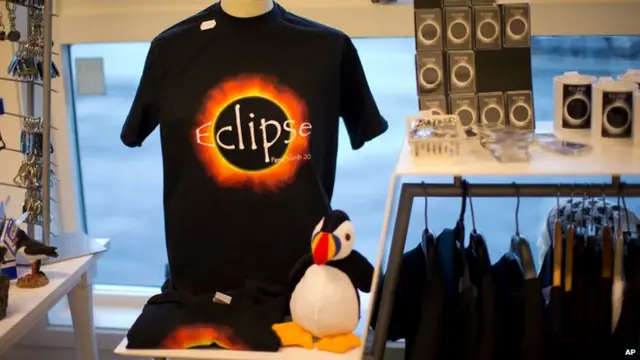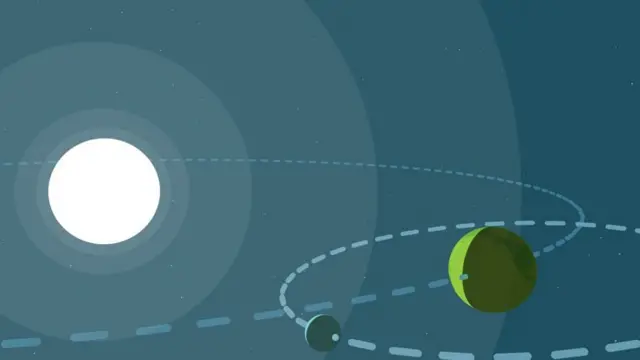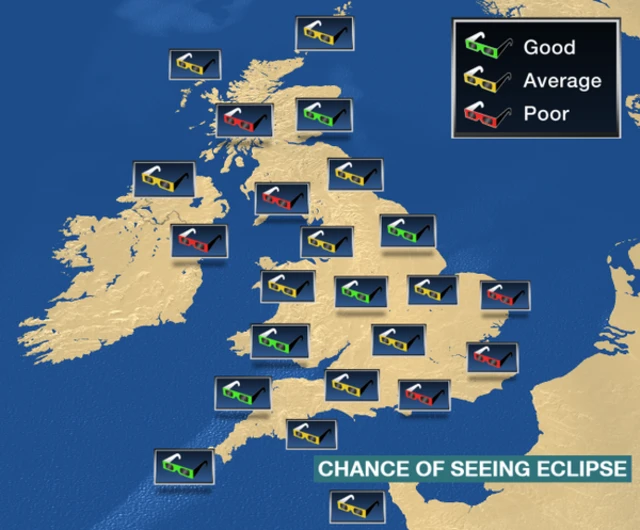Postpublished at 07:45 GMT 20 March 2015
 Image source, AP
Image source, APShops in the Faroe Islands are certainly set for the event. Some tour operators have organised special trips to the islands.
Rosemary Sloggett, managing director of The Independent Traveller, which is taking 133 eclipse-watchers there, said: "A lot of people travelling with us are experiencing their eighth, ninth or 10th eclipse. I think once you've seen one total eclipse it's something that gets under your skin."
BBC Weather presenter Alex Deakin doesn't have great news for them however - as rain is currently forecast.

